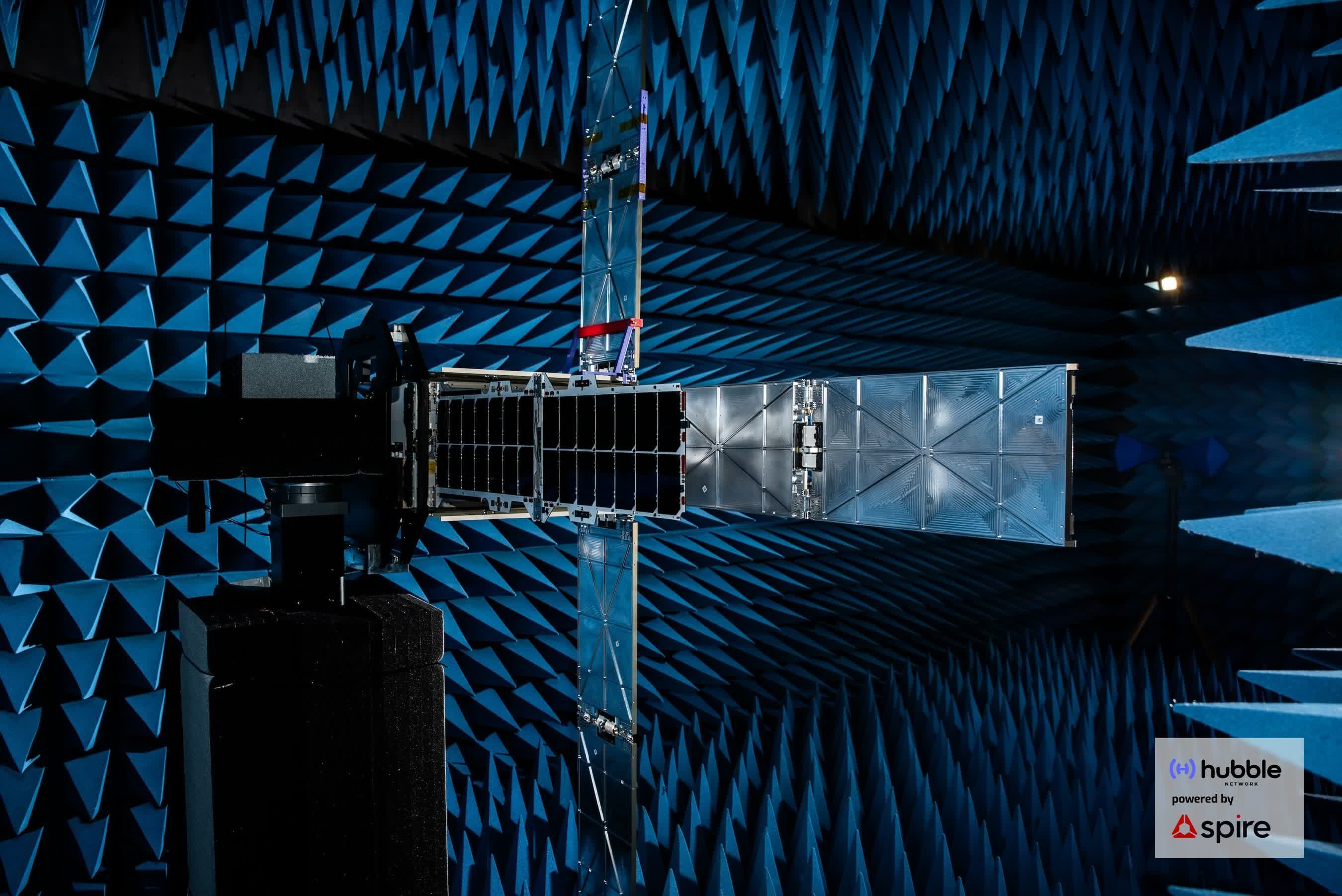The big picture: Hubble Network has set itself the ambitious goal of creating a global satellite network capable of connecting with any Bluetooth device. It has recently demonstrated that this goal is achievable, despite initial skepticism from many. Moving forward, the company intends to expand its network to enhance both capacity and the frequency of satellite flybys.
Hubble Network recently announced that it has achieved something many believed to be impossible: it established a Bluetooth connection directly to space, making it the first company in history to accomplish this feat. The achievement marks an important step towards realizing the company's ambitious goal of creating a global satellite network accessible to any Bluetooth-enabled device.
Earlier this year, the Seattle-based startup launched its first two satellites into orbit on SpaceX's Transporter-10 rideshare mission from Vandenberg Space Force Base on the central coast of California. Since then, they have successfully received signals from a simple 3.5mm Bluetooth chip over a distance of 600 km.
Despite encountering skepticism, especially considering the challenges Bluetooth devices often face in connecting to nearby devices, Hubble Network has proven its critics wrong. "By demonstrating that we can send signals directly from Bluetooth chips and receive them in space from a distance of 600 km, we've opened up a new realm of possibilities," said Alex Haro, co-founder and CEO of Hubble Network.
According to the company, connecting any off-the-shelf Bluetooth device to Hubble's satellite network via a software update - even without cellular reception - could potentially offer global coverage with 20 times less battery drain and 50 times lower operating costs. Countless applications utilizing existing low-power, low-cost sensors could be developed without the need for additional expensive space-enabled hardware.
Hubble Network reports that it is already collaborating with pilot customers in various sectors, including consumer devices, construction, infrastructure, supply chain, logistics, oil and gas, and defense.
Hubble was founded in 2021 by Haro, co-founder of Life360, along with Ben Wild, founder of Iotera, and aerospace engineer John Kim. When the idea of connecting a Bluetooth chip to a satellite was initially presented to Haro, he dismissed it as crazy, especially considering his previous experience grappling with this very problem while attempting to build a GPS watch for kids. However, cracking this particular challenge eventually became irresistible, particularly as existing terrestrial and satellite networks often fall short, struggling with coverage in remote areas and consuming too much power, not to mention their high operational costs on a global scale.
Almost a year ago, the company closed a $20 million Series A round led by Transpose Platform, providing the necessary capital to launch its first series of satellites and onboard its initial pilot customers.

